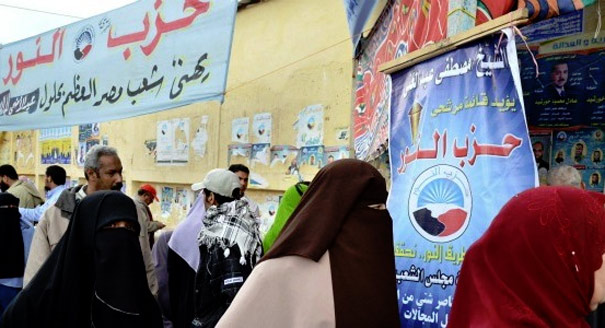This resource was published on 09/21/2011 and is not updated to reflect changing circumstances.
Al-Nour is a Salafi political party founded after the January 2011 uprising. It was originally a member of the Democratic Alliance, but left the alliance in September 2011, becoming the founding member and largest party in the Islamist Alliance.
Major Party Figures
Younes Makhioun: President
Background
Al-Nour was founded in 2011 following the January 2011 uprising. It was the first Salafi political organization to submit a request to be recognized as an official political party. The party’s former president, Emad ad-Din Abd al-Ghofour, made the request in May 2011 as the representative of the party’s founders, and al-Nour was granted official status on June 12, 2011. The party advocates gradual reform under the slogan: “The only reform we desire is the reform we can achieve.” This slogan is based on a view of the principles of Islam as a comprehensive framework for religion and state.
Platform
Political Issues
- Supporting Article 2 of the Egyptian Constitution which states that Islam is the religion of the state and the Islamic law is the main source of legislation
- Preserving fundamental rights and public freedoms in the framework of Islamic law
- Calling for Islamic law to serve as the guiding principles for all political, social and economic issues
- Supporting separation between the legislative, judicial and executive powers and independence of the judiciary
Socioeconomic Issues
- Preserving the right to private property and free economic competition as long as it does not harm the interests of society
- Reducing unemployment through state provision of jobs
- Recognizing health care as a basic human right
- Calling for the complete independence of al-Azhar from the government and restoration of its prominent role throughout the Islamic world
- Improving education and establishing training programs throughout Egypt
- Advocating for a greater state role in the institutions of Zakat and Waqf
- Supporting religious freedom for the Copts and separate personal status laws for non-Muslims
Foreign Policy Issues
- Founding foreign relations on a basis of mutual respect and equality
- Supporting a greater role for Egypt in the Arab and Islamic worlds as well as among the Nile Basin countries, particularly Sudan




